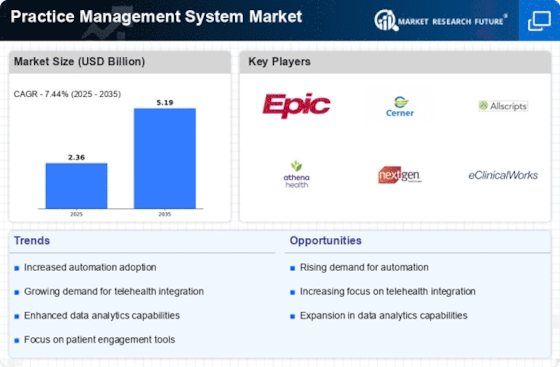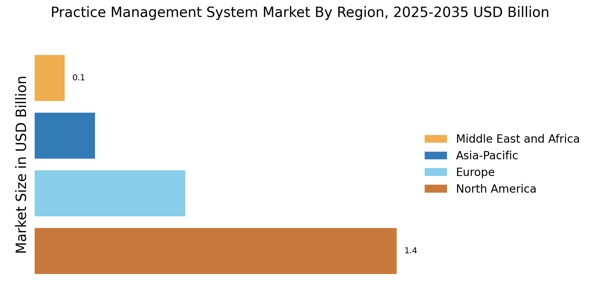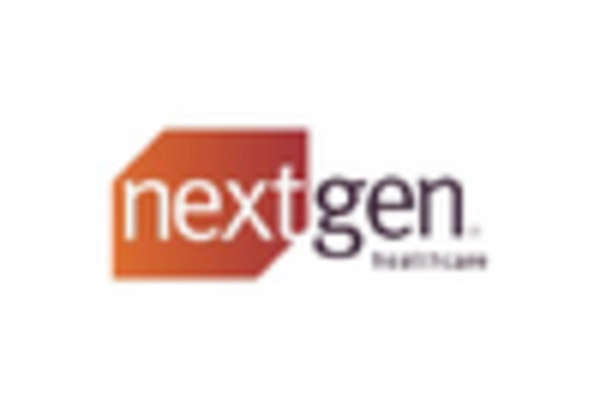Adoption of Cloud-Based Solutions
The adoption of cloud-based solutions is transforming the Practice Management System Market. Healthcare organizations are increasingly migrating to cloud platforms due to their scalability, cost-effectiveness, and ease of access. Cloud-based systems allow for real-time data sharing and collaboration among healthcare teams, which can enhance decision-making and patient care. As of 2025, it is projected that cloud-based practice management systems will capture a significant share of the market, driven by the need for flexible and efficient solutions. This shift not only reduces the burden of IT management for healthcare providers but also positions them to adapt to changing market demands more effectively.
Integration of Telehealth Services
The integration of telehealth services into the Practice Management System Market is becoming increasingly prevalent. This trend is driven by the growing demand for remote healthcare solutions, which allows practitioners to reach patients more effectively. As of 2025, it is estimated that telehealth services will account for a substantial portion of healthcare delivery, with projections indicating a market growth rate of over 25% annually. This integration not only enhances patient access but also streamlines administrative processes, thereby improving overall efficiency within the Practice Management System Market. The ability to manage appointments, billing, and patient records through a unified platform is likely to attract more healthcare providers to adopt these systems, further propelling market growth.
Growing Emphasis on Patient Engagement
The growing emphasis on patient engagement is a notable driver within the Practice Management System Market. Healthcare providers are increasingly recognizing the importance of involving patients in their own care processes. Systems that offer features such as patient portals, appointment reminders, and educational resources are becoming essential tools for practices aiming to enhance patient satisfaction and outcomes. Research indicates that practices that actively engage patients can see a 20% increase in patient retention rates. This focus on engagement is likely to propel the demand for sophisticated practice management systems that facilitate these interactions, thereby contributing to market expansion.
Rising Demand for Operational Efficiency
The Practice Management System Market is witnessing a rising demand for operational efficiency among healthcare providers. As healthcare costs continue to escalate, organizations are increasingly seeking solutions that can optimize their workflows and reduce overhead expenses. The implementation of practice management systems has been shown to decrease administrative burdens, allowing healthcare professionals to focus more on patient care. Reports suggest that practices utilizing these systems can experience a reduction in operational costs by up to 30%. This drive for efficiency is likely to encourage more healthcare facilities to invest in advanced practice management solutions, thereby fostering growth within the Practice Management System Market.
Increased Regulatory Compliance Requirements
The Practice Management System Market is significantly influenced by the increasing regulatory compliance requirements imposed on healthcare providers. As regulations evolve, practices must ensure that they adhere to various standards, including data protection and patient privacy laws. The implementation of robust practice management systems can facilitate compliance by automating reporting processes and maintaining accurate records. It is estimated that compliance-related costs can consume up to 15% of a healthcare provider's budget. Therefore, the ability of practice management systems to streamline compliance efforts is likely to drive their adoption, thereby enhancing the overall market landscape.

















